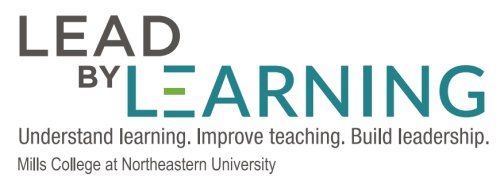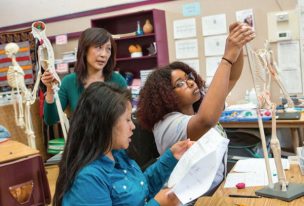Alternative Teacher Evaluation: Do We Dare?

Written by Daniela Mantilla, Program Associate (more about Daniela)
The national debate on teacher quality has put a spotlight on teacher evaluation—on its importance and the poor state of the status quo in reflecting an evaluation system that truly helps teachers grow at whatever stage they are in their teaching career. Whereas most U.S. districts are mired in antiquated teacher assessment models, there are indeed some progressive schools and districts that have endeavored to create evaluation systems that truly value the professional learning of teachers.
Berkeley’s Unified School District, a city often at the forefront of change, has had an alternative evaluation option for years. Teachers receiving a summative evaluation of “Distinguished” or “Proficient” may participate in Alternative Evaluation in their subsequent evaluation cycle, if this is agreed upon with the principal. There are three Alternative Evaluation options: Lesson Study, Teacher Action Research and application for National Board Certification.
At Rosa Parks Elementary, a Mills Teacher Scholars partner site, teachers had the opportunity to combine their Mills Teacher Scholars’ Inquiry with their Alternative Evaluation. Traditionally, teachers participating in the action research alternative meet with principal to establish topic, submit a report at the end of the year and present to staff. Working with Mills Teacher Scholars, all participating teachers at Rosa Parks have had the opportunity to develop an inquiry question, gather student work data, analyze these data with colleagues and make their work public. The work that newer teachers are doing with the scholars will set them up with a strong understanding of quality action research for future Alternative Assessment, while teachers who elected Alternative Assessment have the structure to support them through the year.
Kathleen Gadway, an ELD specialist at Rosa Parks who has participated in Alternative Assessment previously, noted that the Mills Teacher Scholars work sustained her inquiry in a way she had not experienced in the past. It allowed her to think collaboratively and publicly about her research question throughout the year. In doing so, she gained valuable feedback from other teachers, modeled her own professional thinking and learning process to neophyte teacher researchers, and directly impacted student learning through her focus on improving the after school reading intervention program.
Contrast this approach to the evaluation experience of most teachers at conventional public schools. It goes something like this: You submit a well-written lesson plan to the principal who comes soon after to observe your lesson. This lesson is carefully planned and choreographed to highlight the best tricks you have up your sleeve for student engagement and effective transitions. You play it safe, not trying out something entirely new, and you give this one lesson far more time and emotional energy than for any other. You might warn your class that the principal will be visiting and they must be on their best behavior. You may even offer students a reward for this. (Ice cream party anyone?) You probably don’t collaborate with colleagues on the lesson, share your reflections on student learning, or have the opportunity to look collaboratively at student work from the lesson. If you are lucky, you have an administrator who is a strong instructional leader, who has the theoretical and practical background to give you feedback that might be helpful. Most of us are far happier, however, when the lesson goes like clockwork, our kids shine, and we come across, if only for those 45 minutes, as accomplished teachers who exceed standards for the teaching profession. For many of us, this is one of the few times our principal or administrator comes into our classroom for more than a quick peek.
And although after the typical evaluation cycle we feel relieved, glad that we won’t go through this painful process for a while, we may feel a bit sheepish and false about the outcome. The reality of classroom life is often far different than what goes on during a formal observation. Teaching and learning are dynamic and uncertain. What happens in the moment for individual students is sometimes illusive and only when looking at student work, observational notes, and other sources of student data can we probe more deeply into this. More importantly, both student and teacher learning happen over time—through experimentation, risk taking, practice, and reflection. In order to make sure teachers grow as a result of their professional evaluations and assessments, we certainly do need to envision a new framework that takes this into account. The “one size fits all” standard evaluation that is the only choice in most districts across the country will just not do for the increasing demands of teaching and learning in the 21st century.
Berkeley Unified has imagined an alternative approach to evaluation that takes into account the complexity of teaching, allows for the professionalism of teachers, and acknowledges that experienced teachers may have questions they want to explore and expertise to share with other staff members. Who’s next?

